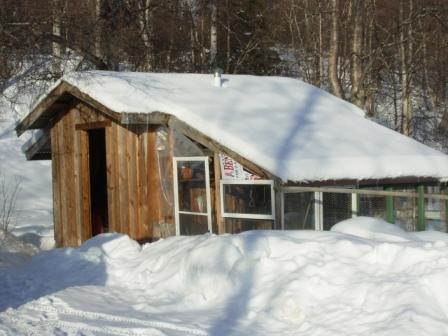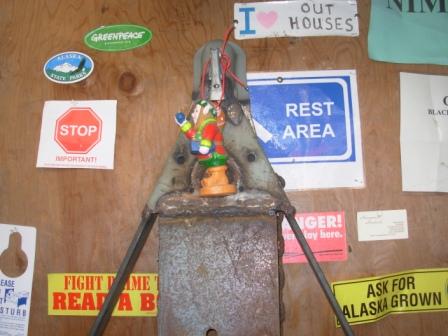
Home > Dispatches > Trip Preparations >Transitions
April 20, 2011
Transitions
I think about the word transition a great deal, and in fact have considered writing a book on this very subject. This is probably because I’m in charge of structuring my days. I have considerable autonomy, which is what I most value in life. I have time to think about things like transitions. I did a few stints as a factory worker, and it was horrific. I found it impossible to accept the fact that the only end reward was money, and it was a small amount at that. I remember once exclaiming to a co-worker “There has to be more to life than this!” She shrugged and returned to stapling price tags on purses. I then again became lost in my own thoughts. How difficult would it be to steal one of these purses? And what would happen if I did this? How would my life change, if at all? Being a felon, that could mark one for life. Best to just do the job, and do it well. But by that time, I’d fallen hopelessly behind in the task at hand. Later that day, I was told that I was fired. I didn’t argue because I knew that what went unsaid was correct. This wasn’t the job for me.
A transition, just generally defined, is a change in a task or idea. In relation to writing, it’s when one momentarily abandons one idea, and goes on to the next. This can take place on the word, sentence, or paragraph, level. The catch is that the old idea has to be somehow linked to the new one, so that the reader can make the necessary connection. This is what makes collage or fragmented essays so challenging. Horsehair. Handbag. Label. The reader juxtaposes these words in relation to one another, and the writer makes an inference. This inference is sometimes based on what the writer previously said or implied. The writer can, of course, insert more verbiage, and in this way infer more, as in the label on the horsehair handbag made it difficult to steal. The more one says, the less the reader can infer. Some readers like having their hands held. Some don’t. Hence the decline in the popularity of poetry.
In high school I took an honors writing class, which really was an honor since I was taking remedial math and science courses. The teacher had us write about a short story by Ethan Frome, , and then circle key words in each paragraph—this was his way of showing us the importance of transitions. A fun exercise, although I argued that sometimes transitions were more intuitive. “Pretty good thinking for an inexperienced writer” he said. He used the word writer. This made me feel good. I then took the circled words and came up with my first found poem.
Getting to the computer, and then leaving it, I find these two kinds of transitions to be quite difficult. Before, I putter. And after, I putter. But in between, I’m okay. I am generally able to put myself into the zone, and make writing-related transitions. I’ve gotten into the routine of doing house and trip related stuff after I write. For example, yesterday I cooked, cleaned, moved some wood. Today I’ll make a dump run and clean out the beehives, since the new bees will be arriving on Friday. Then I’ll staple old New Yorker covers in the outhouse, and after, steel myself up to go for a horseback ride.
The trip is going to be the end result of a series
of smaller transitions. We’ll leave here around May 1. While on
the road, we’ll establish a new routine, with differing daily transitions.
This will then change when we’re on the trail. If in August, I continue
on without Pete, there will be another change in routine, which of course
will involve a differing set of transitions. Transitions are good. Self-initiated
transitions are even better. While on our way to Nilla’s, I realized
that I was, for the first time in a long time, extricating myself from
a rut that I’ve inadvertently gotten myself into. It then crossed
my mind that as we get older, transitions get increasingly more difficult
for as we age, we become more set in our ways. The truism is this: one
becomes less flexible both mentally and physically as they age. I hope
this summer to regain something I’ve lost, that is the ability to
make smooth transitions.

